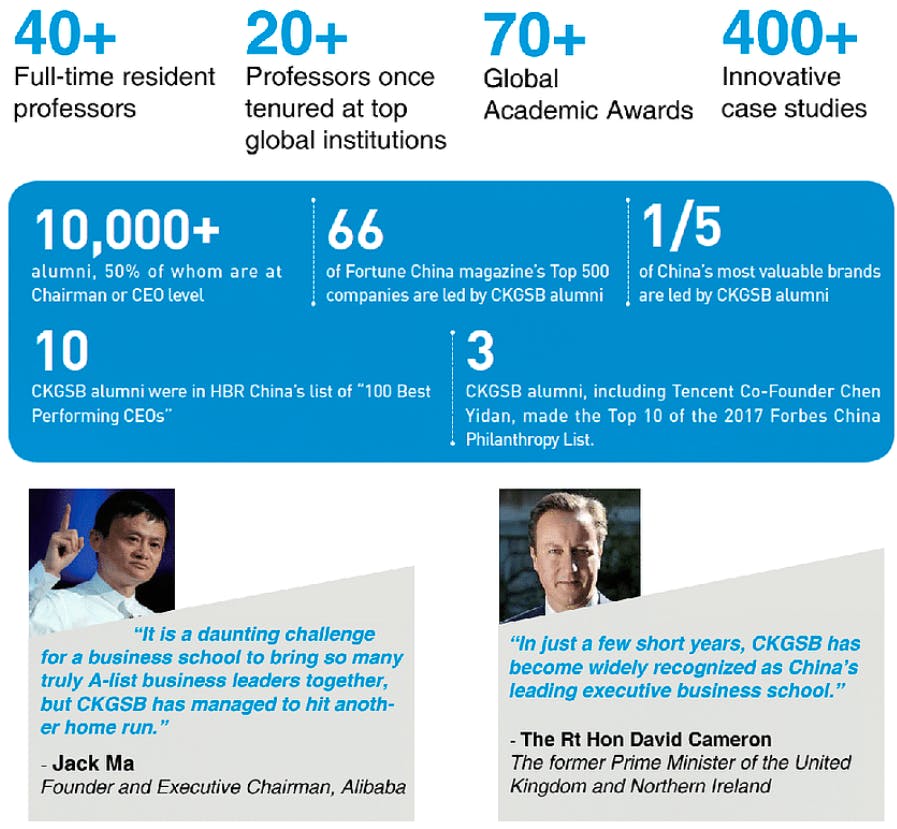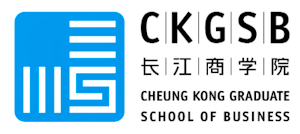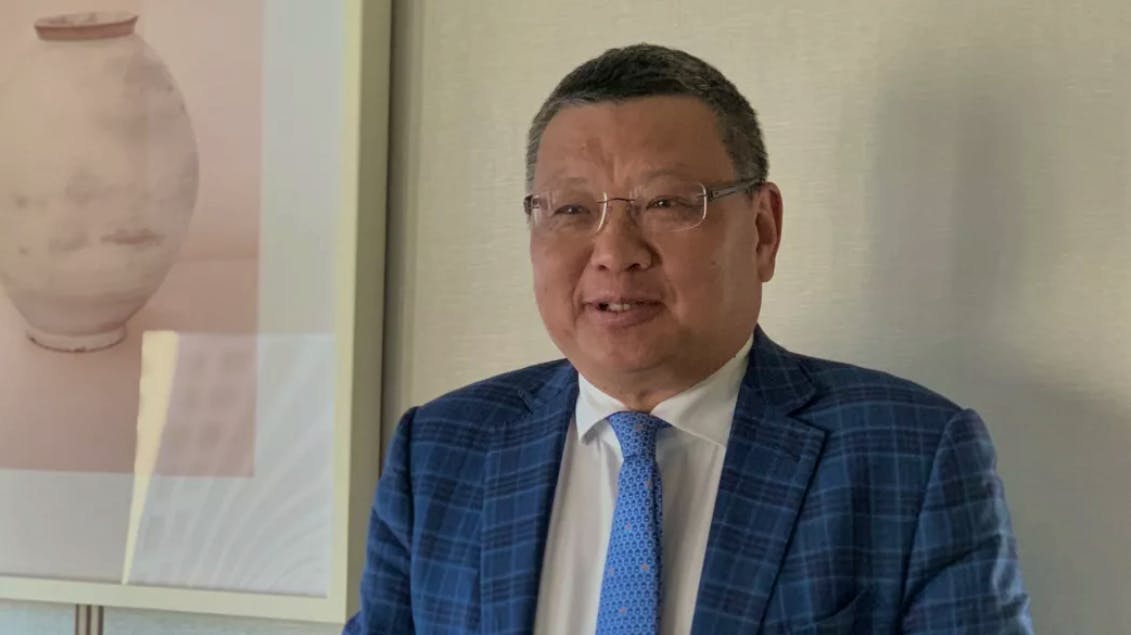Dr. Xiang Bing, Founding Dean of Cheung Kong Graduate School of Business (CKGSB), met with ChosunBiz in Seoul and had an in-depth discussion on the value of business schools and the future of the Chinese economy.
Underscoring how China maintained and strengthened its position as the world’s third largest economy since 2008, Dr. Xiang said,
“If companies fail to understand the East Asian markets, including China, there is a greater risk of management making wrong decisions.”
The value of a Chinese MBA
The emergence of global technology behemoths such as Alibaba, Tencent, and Huawei has prompted a growing interest in how to conduct business in China. As a result, a premium is now placed on “Chinese MBA,” which integrates topics related to China with case study analyses and discussion-based courses that are common in US MBA programs.
China’s European International Business School (CEIBS), CKGSB, and BiMBA Business School of the National School of Development at Peking University are among the beneficiaries of such shift in focus.
CKGSB is a premier business school in China founded in 2002 with the support of the Li Ka Shing Foundation. The school has campuses in Beijing, Shanghai, and Shenzhen and offices in Hong Kong, London and New York. CKGSB offers innovative MBA, Finance MBA, Executive MBA, Business Scholars Program (DBA) and Executive Education programs.
CKGSB boasts a roster of distinguished alumni including Jack Ma, founder of Alibaba, Shi Yuzhu, Chairman of Giant Interactive, Li Dongsheng, Chairman of electronics company TCL Corp., and Fu Chengyu, Chairman of China’s national oil and gas enterprise Sinopec.

Full transcript of interview with Dr. Xiang Bing
Dressed in a blue check suit and tie, Dr. Xiang spoke with unabashed authority on a range of topics including education on Chinese business practices, global economic outlook, and strategies that Korean companies should consider when entering the Chinese market.
Q: Since the global financial crisis, there is a growing concern that MBA programs have turned into a “high cost, low return” degrees. What do you think about this?
Upon earning an MBA degree, there is still a high percentage of individuals seeking employment at large investment banks such as Goldman Sachs and global consulting firms such as Mckinsey. China is no exception. Those industries, however, are not growing fast enough. This should not be a cause for frustration because new opportunities are being created as corporate social activities expand into an array of diverse fields. Case in point: Interest in corporate social responsibility (CSR) and activities to support social organizations are on the rise.
Q: What makes the CKGSB MBA unique?
Our goal is to be the Googles and Facebooks in global business education. Over a short history of 17 years, we positioned ourselves as a leading business school in China. We did not, however, rest on our laurels and we continued to innovate.
For example, from the inception of CKGSB, we incorporated humanities, history, religion and philosophy into our curriculum. We are the first business school in the world to do so.
Our hope is to help graduates enjoy an enriching life, not just a rich life.

Q: Wouldn’t spending time on humanities strip away time to study subjects that are more practical?
In order for future business leaders to be competitive, they must have passion and empathy. There is clear limitations in the winner-takes-all mindset.
Humanities is the foundation of passion and empathy.
It also helps when managing talents of diverse nationalities. Isn’t this sufficiently practical?
Q: We cannot discuss innovation without cutting-edge technology.
In a variety of ways, we are helping our students to keep up with the changing trends in high tech. As part of our efforts, we established partnerships with the engineering department at Columbia University in 2016 and UC Berkeley in 2017. Furthermore, we are collaborating with leading technology companies such as Tencent, Baidu, and DJI to provide insight into China’s innovation ecosystem to our international students.
China’s economic growth rate fell to 6% in the third quarter of 2018 from 6.8% in the first quarter. On a quarterly basis, it is the lowest level in 30 years.
Q: Previously, Samsung Electronics commanded the No.1 position in the Chinese smartphone market. Today, Samsung’s market share is at around 1%. Is it possible for Korean companies to create new opportunities in the Chinese market?
Absolutely yes. It takes a forward-looking approach. The pain of the past should not pose as an impediment for cooperation for future growth. For Korean companies, the Korean market alone is too small. There is a need to strengthen cooperation not only with China but also with Japan. It would be great if a Korean entrepreneur with a groundbreaking item or technology built an ecosystem that can be established simultaneously in Korea, China and Japan.
Q: What are some of the promising sectors in China in the future?
The pace of deregulation in the consumer goods sector will spur enormous opportunities. Healthcare, which is relatively stagnant, is also expected to grow. This is especially true as China has a rapidly aging demographic.

According to a report by Zhongtai Securities China is expected have an aging society by 2021, with the population aged 65 years and above reaching 14%. Clusters of population aging are already present in Shandong and Liaoning provinces with population aged 65 years and above surpassing 14%. Zhongtai Securities predicts China to become a super-aged society by 2031 with a total population aged 65 years and above reaching 20%.
About Cheung Kong Graduate School of Business

The Cheung Kong Graduate School of Business Administration (MBA) program adopts English teaching and intensive teaching for 14 months. Based on the original China insights of the world-class professors of the Yangtze River, the entrepreneurial alumni resources guide students to practice, and are committed to fostering global vision and innovation A future business leader with competence and social responsibility.
Most of the Yangtze River MBA students graduated from world-renowned universities and have solid working experience at home and abroad. The proportion of international students is 25%-30%. The study experience at Cheung Kong Graduate School of Business has enabled them to accelerate their career advancement and achieve breakthrough growth in life.
Learn more about CKGSB here.
Read Related Articles
CKGSB MBA Round 6 Application Deadline on Monday, 10th August
CKGSB MBA 2020 Complete Admissions Information
10 Reasons Cheung Kong Graduate School of Business (CKGSB) is the Elite Business School in China
Why This Student Chose to Study an MBA at CKGSB in China over a European School
CKGSB – Cultivating Future Business Leaders with a Strong Sense of Social Responsibility
Why Cici Liu Quit Her Wall Street Job and Went Home to China for her MBA
Amorepacific’s eldest daughter Chose an MBA in China
As an international student, can I land a job in China?
Sankar Nohan: Taking The Leap and How an MBA at CKGSB Bagged Him a Job at Amazon
- 5 Tips to Get a Scholarship in China this 2025 - July 16, 2024
- Study MBBS in China: Admissions Guide for 2024! - June 12, 2024
- 8 Universities in China with the Best Online Chinese Programs for 2024 - June 2, 2024
